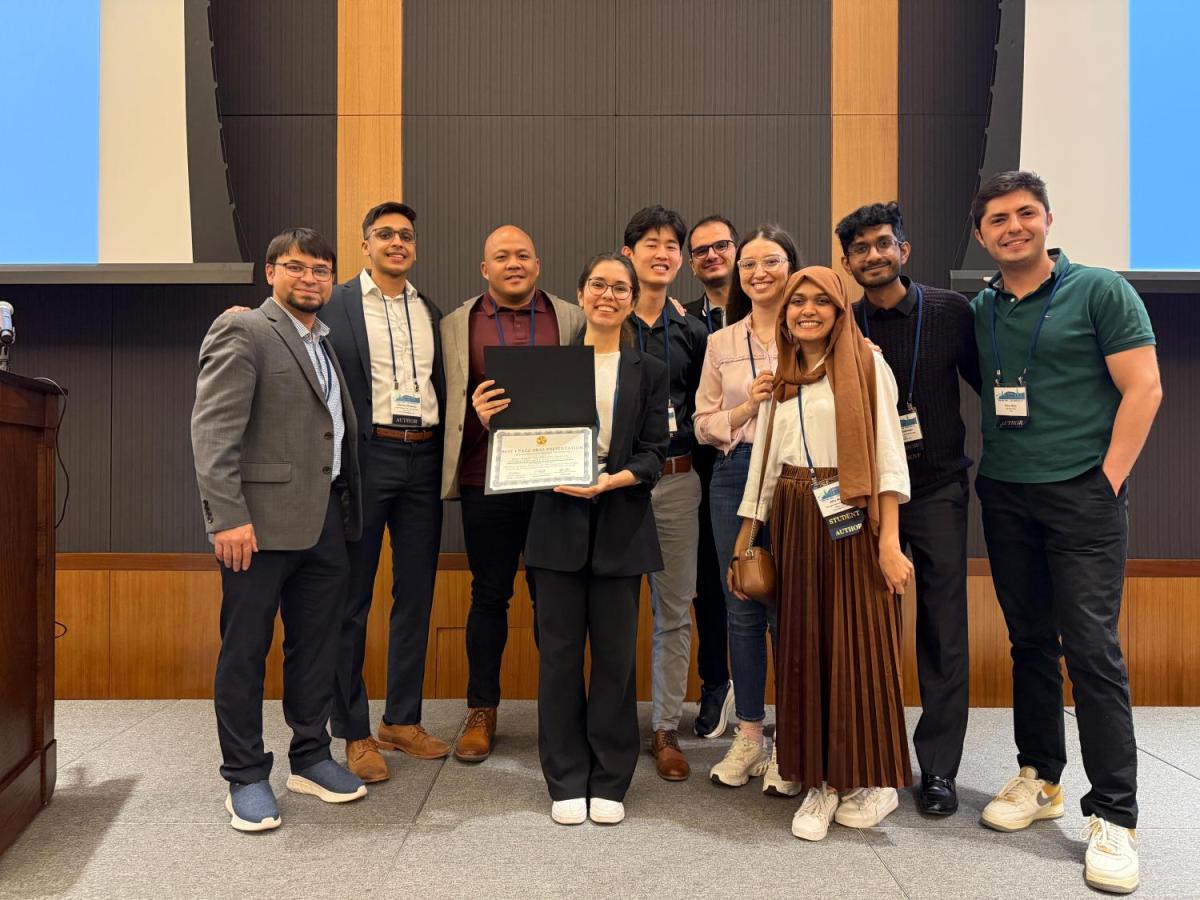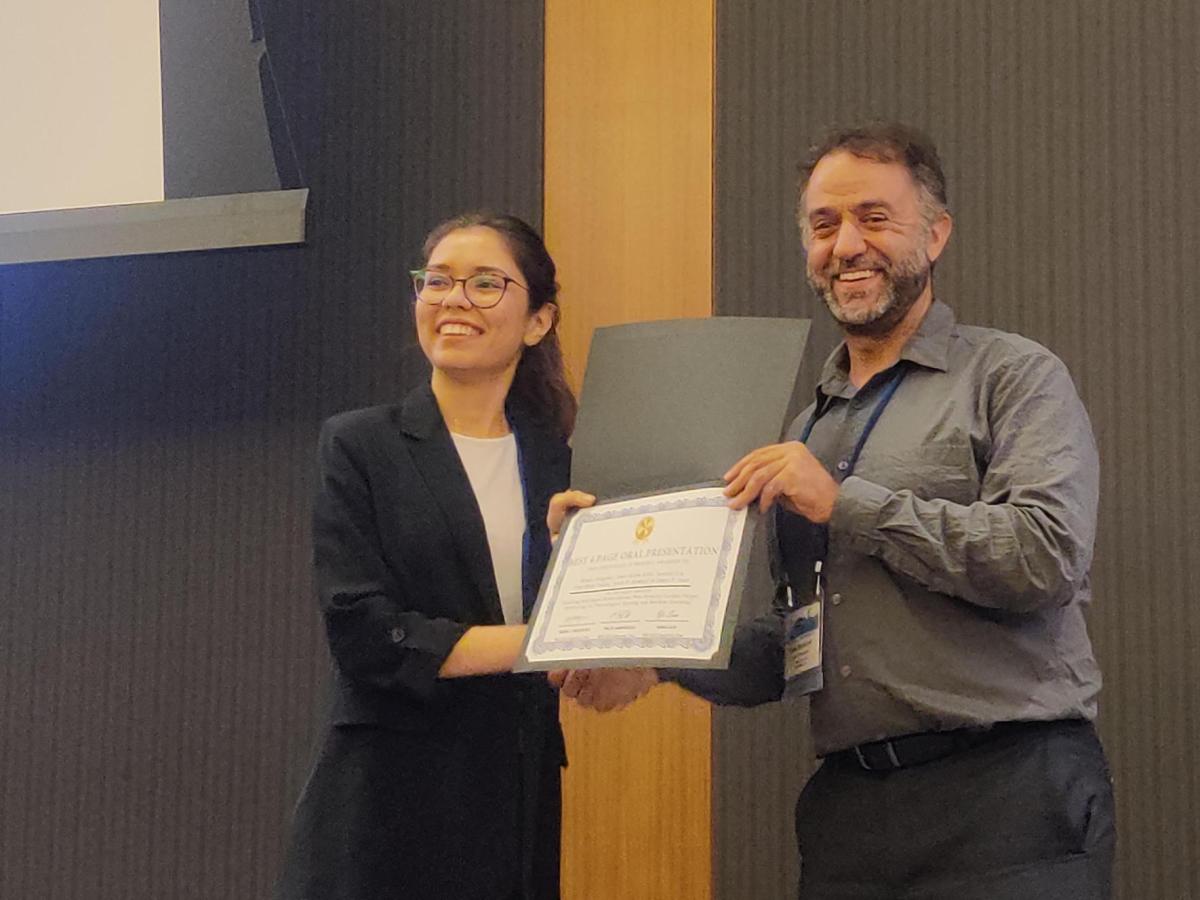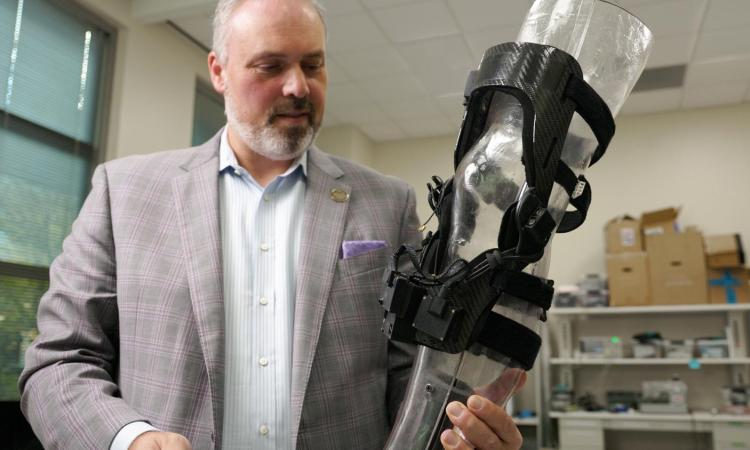The research from Regents Entrepreneur Omer Inan’s research lab was recognized at the 2025 IEEE-EMBS International Conference on Body Sensor Networks for demonstrating how cardiac output can be measured with non-invasive cardiovascular signals.
(text and background only visible when logged in)

(text and background only visible when logged in)
For the body to function, the heart needs to pump the right amount of blood for other vital organs to stay properly oxygenated and nourished.
The measurement of how much blood is being pumped is called cardiac output (CO). It is an important metric during trauma care, but methods used to measure cardiac output have shortcomings.
“The current gold-standard cardiac output measurement methods are invasive and costly, and are therefore unsuitable for pre-hospital care,” Georgia Tech School of Electrical and Computer Engineering (ECE) Ph.D. student Demet Tangolar said.
These include thermodilution, which involves injecting a known volume of cold fluid into the bloodstream and measuring the temperature change as it travels through the heart, and magnetic resonance imaging (MRI).
At the latest IEEE- Engineering in Medicine and Biology Society (EMBS) International Conference on Body Sensor Networks (BSN) held in Los Angeles from Nov. 3 – 5, Tangolar won the best paper award for research that demonstrated a non-invasive method for accurately estimating cardiac output.
The study out of Regents Entrepreneur Omer Inan’s research lab, titled “Enabling Intelligent Resuscitation: Non-Invasive Cardiac Output Monitoring via Physiological Sensing and Machine Learning,” integrates cardiovascular signals, including the electrocardiogram (ECG), photoplethysmogram (PPG), and seismocardiogram (SCG), and machine learning algorithms to achieve clinically acceptable results.
“Our findings show that these non-invasive signals carry meaningful information for estimating CO, bringing us closer to calibration-free, non-invasive CO monitoring,” Tangolar said.

Tangolar receiving the best paper award at the 2025 IEEE-EMBS International Conference on Body Sensor Networks.
They hope these results will improve healthcare options in emergency situations.
“This study can be applied to trauma care, where baseline data are often unavailable, and in the future can enable faster and more accurate resuscitation to restore tissue perfusion and cardiac function,” Tangolar said. “This approach may reduce resuscitation risks (under- and over-resuscitation) and support timely interventions in pre-hospital settings.”
The 2025 IEEE-EMBS BSN was also the first time she got to present research at a conference.
Tangolar began her Ph.D. at ECE in 2024 after completing her undergraduate studies in Electrical and Electronics Engineering at Middle East Technical University, Turkey.
Related Content
New Wearable Device Monitors Joint Pain
Arthroba is a device that uses electrical sensors to track swelling and tissue damage in the knee, ankle, and other critical joints.
Sanchez Perez Wins Best Paper Award for Novel Non-Invasive Medical Assessment
The novel approach developed by ECE Ph.D. graduate is aimed at being used for pleural effusion monitoring and has the potential for future expanded uses with many diseases.

